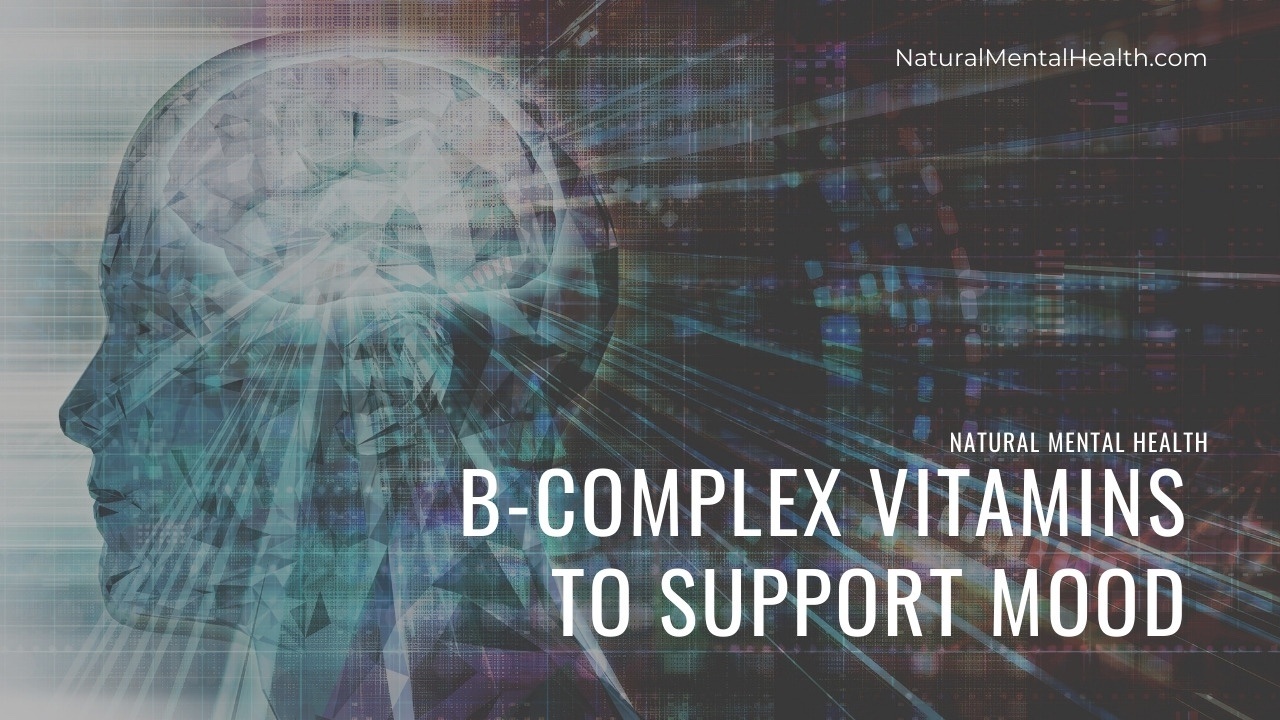
B-Vitamins for Mood Support
Mar 04, 2021by, Henry Emmons MD
Please note: The product links in this blog go to our partner store, Fullscript (with an ongoing 10% discount for you + free shipping on orders over $50). You must have an account to view products and shop. Create your free account at: https://us.fullscript.com/welcome/nmh/signup. Learn more about Fullscript here.
Benefits of Activated B-Complex Vitamins*
Supplementing with a high-quality, moderate dose, activated B-complex vitamin can be one of the simplest, safest, and surprisingly helpful things to start with for almost anyone dealing with depression. Of course, there are exceptions, which I’ll note below and you should always check with your doctor before beginning any new vitamin or supplement.
In my practice, there are three main conditions that prompt me to add a B-complex, like Resilient Remedies' Activate:
- Anyone whose depression started early in life and/or has a strong family history of depression.
- Whenever energy, motivation, and focus are a struggle. This is common in most people with winter depression, for example.
- During times of unusually severe or prolonged stress.
I also consider adding it when antidepressant medications are insufficiently effective, or when the medication dose has to be kept low due to side effects. I find that an activated b-complex (like PureGenomics B-Complex) can boost the effectiveness of the medications.
B Vitamins and Depression: What makes the B vitamins so important for mood?
Biochemically, there are two crucial jobs for the B vitamins that impact mood:
- They are a central part of the “Krebs cycle,” which you may recall from science class as the energy production cycle within each cell. It’s a process that involves oxidation, releasing the energy stored in food and making it available to run the body. For the brain, the only source of energy is glucose, but the B vitamins are necessary for that conversion to happen.*
- B vitamins also serve as anti-oxidants, giving a layer of protection to the cells from the byproducts of oxidation.*
As you can see, B vitamins not only help to make energy, but to protect brain cells from the impact of making energy. The perfect combo! Likewise, B vitamins serve as essential partners (i.e., “cofactors”) in the production of the neurotransmitters serotonin, dopamine, and norepinephrine. Many people with depression feel better when these neurotransmitters are boosted or when they become better balanced with one another. The B vitamins are important in making that boost or balance possible.*
Often, there is a genetic component to depression, and B vitamins play a central role in that genetic error. For example, about 10-15% of people have a mutation in the gene that regulates folic acid (called the “MTHFR mutation”). They might eat a perfectly healthy diet with lots of green vegetables high in folate, but they lack the enzyme that converts dietary folate into a form that the body can use. I believe that explains some of the reason why depression runs in families, or why it might start at such a young age even without a traumatic childhood. There are now products like PureGenomics B-Complex which contain the activated form of folate and other B vitamins, essentially bypassing this genetic error. That may be why some people feel so much better by just adding an activated B vitamin.*
PureGenomics B-Complex
- Provides activated B vitamins, including pyridoxal-5-phosphate, riboflavin-5-phosphate, enhanced-retention thiamin derivative benfotiamine, and 800 mcg of Metafolin® L-5-methyltetrahydrofolate (L-5-MTHF), the naturally occurring, universally metabolized form of folate
- Offers vitamin B12 in unique blend of adenosylcobalamin and hydroxycobalamin
- Made with hypoallergenic, vegan ingredients
B-Vitamins Side Effects*
B vitamins are found in food and are often very safe and well-tolerated. There are a small percentage of people who may become over-activated by B vitamins, however. If that happens, the dose should be kept low, taken with food, and should be avoided later in the day so as not to affect sleep. If it still seems agitating, it should be discontinued.*
*Note: Some of the supplements discussed in this article can cause side effects, but many people tolerate them much better than prescription medications. They are generally considered safe, however, they should not be started without your doctor’s knowledge and supervision. If you are taking medication already, be sure to talk with your doctor before adding any of these items. If you are considering going off medication, remember never to stop your medication suddenly—always consult with your doctor about how to safely taper off any psychiatric medication. See terms. These statements have not been evaluated by the Food and Drug Administration. This product is not intended to diagnose, treat, cure, or prevent any disease.
RELATED ARTICLE
Reward Yourself: Increase Dopamine
Dopamine can improve motivation and the experience of pleasure and enhance microcirculation in parts of the brain. Read more.
SOURCES
Folate: Fact Sheet for Health Professionals, June 2020. https://ods.od.nih.gov/factsheets/Folate-HealthProfessional/
Benton, D., Griffiths, R., & Haller, J. (1997). Thiamine supplementation mood and cognitive functioning. Psychopharmacology, 129(1), 66–71. https://doi.org/10.1007/s0021300501639528.
G. Douaud, et al., “Preventing Alzheimer’s disease-related gray matter atrophy by B-vitamin treatment,” Proceedings of the National Academy of Sciences, 110, no. 23 (June 2013): 9523-9528.
J. Walker, et al., “Oral folic acid and vitamin B-12 supplementation to prevent cognitive decline in community-dwelling older adults with depressive symptoms--the Beyond Ageing Project: a randomized controlled trial, American Journal of Clinical Nutrition, 95, no. 1 (January 2012): 194-203.
Godfrey P, Toone B, Carney M, et al., “Enhancement of recovery from psychiatric illness by methylfolate,” Lancet, 1990; 336: 392-395.
Bell I., Edman J, Morrow F, et al., “B complex vitamin patterns in geriatric and young adult inpatients with major depression.” J Am Ger So. 1991; 39:252-257.
Penninx BW, Guralnik JM, et al. “Vitamin B12 Deficiency and Depression in Physically Disabled Older Women: Epidemiologic Evidence from the Women’s Health and Aging Study,” Am J Psychiatry. 2000; 157 (May): 715-721.









